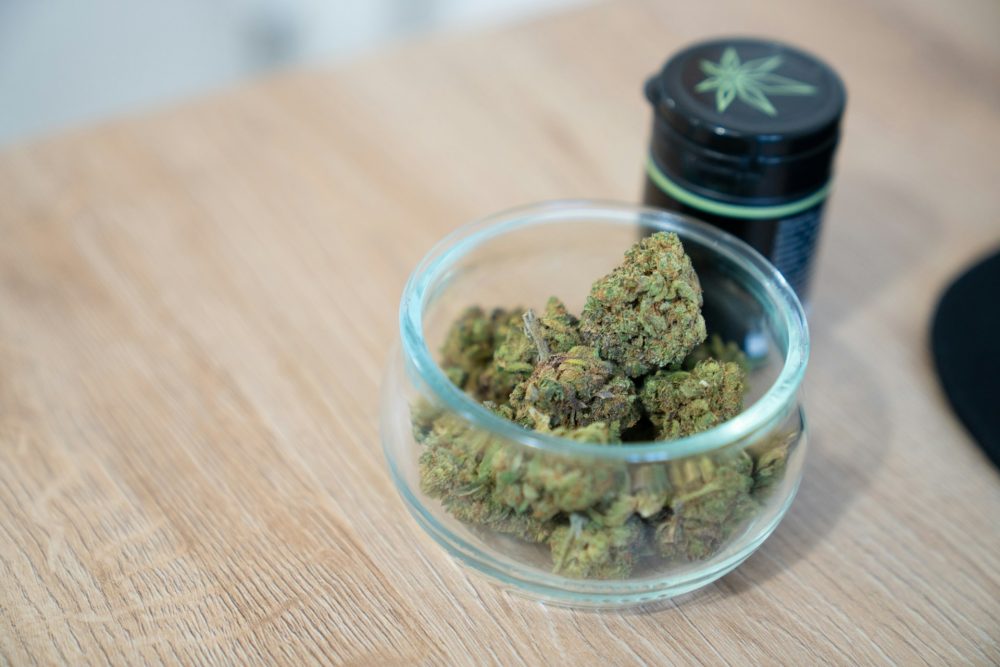Cannabis
Americans Spent More on Legal Cannabis in 2022 than on Chocolate and Beer
According to MJBizDaily, the value of the legal cannabis market in the U.S. will grow steadily in the coming years. By 2024, spending on cannabis should increase by another $3.6 billion, and by 2028 sales are projected at $57 billion. After cannabis legalization, companies involved in the production and distribution of legal cannabis are recording huge profits.

In the past year, Americans’ spending on cannabis-related products exceeded the amounts spent on candy and craft beer. Sales of cannabis in licensed stores totaled more than $30 billion over the past year, compared to $18 billion for sweet treats. The amount spent on legal cannabis increased by more than $12 million from the previous year.
The legal cannabis market in the U.S. is growing stronger, thanks primarily to the legalization of cannabis sales in more states. A few years ago, cannabis was legal only in Washington and Colorado, but now, following changes in the law, sales are allowed in 20 states. Although federal regulators still disagree on nationwide decriminalization, the number of cannabis-related stores is growing, which is having a positive effect on the market.
According to a report published by MJBizDaily, in 2022 Americans spent more money on legal cannabis than on chocolates and craft beer combined. The legal cannabis market also surpassed spending on painkillers, reaching $22.8 billion compared to $18.2 billion for drugs.
Read more about the U.S. legal cannabis market and find the latest cannabis news with the Hemp.im mobile app.
Cannabis and chocolate – the perfect combination?
According to MJBizDaily, the value of the legal cannabis market will grow steadily in the coming years. By 2024, spending on cannabis should increase by another $3.6 billion, and by 2028 sales are projected at $57 billion.
According to experts, the legalization of cannabis has contributed to economic growth in the US. The cannabis industry encompasses many branches, including manufacturing, retail, consulting, and legal services. The number of jobs in the sector continues to grow, and taxes from the sale of legal cannabis contribute to increased government revenue.
After cannabis legalization, companies involved in the production and distribution of legal cannabis are recording huge profits. An example is the state of Colorado, where in the five years since legalization, the industry has created more than 40,000 new jobs. In addition, legal cannabis production generates tax revenue that can be used to fund various areas, such as education and health care.
The legalization of cannabis also has a positive impact on society
According to cannabis advocates, legalization reduces the number of drug trafficking crimes and contributes to the reduction of arrests and prison sentences associated with possession of small amounts of cannabis. In addition, legalization may help reduce the influence of drug cartels and criminal organizations on the drug market.
Nevertheless, there are also concerns about the legalization of cannabis. One of the main arguments of opponents of legalization is that cannabis can be harmful to health and can lead to addiction. In addition, they fear that legalizing cannabis could lead to an increase in traffic accidents caused by drivers under the influence of THC.
Clearly, the legalization of cannabis has both positive and negative sides. However, in many countries around the world, including some states in the US, the legalization of cannabis is becoming increasingly popular. In the future, this could contribute to changes in attitudes toward liberalizing cannabis-related laws in other countries and lead to new ways to control and reduce the harms associated with its use.
__
(Featured image by Brandon Nickerson via Pexels)
DISCLAIMER: This article was written by a third-party contributor and does not reflect the opinion of Born2Invest, its management, staff or its associates. Please review our disclaimer for more information.
This article may include forward-looking statements. These forward-looking statements generally are identified by the words “believe,” “project,” “estimate,” “become,” “plan,” “will,” and similar expressions. These forward-looking statements involve known and unknown risks as well as uncertainties, including those discussed in the following cautionary statements and elsewhere in this article and on this site. Although the Company may believe that its expectations are based on reasonable assumptions, the actual results that the Company may achieve may differ materially from any forward-looking statements, which reflect the opinions of the management of the Company only as of the date hereof. Additionally, please make sure to read these important disclosures.
First published in Fakty Konopne, a third-party contributor translated and adapted the article from the original. In case of discrepancy, the original will prevail.
Although we made reasonable efforts to provide accurate translations, some parts may be incorrect. Born2Invest assumes no responsibility for errors, omissions or ambiguities in the translations provided on this website. Any person or entity relying on translated content does so at their own risk. Born2Invest is not responsible for losses caused by such reliance on the accuracy or reliability of translated information. If you wish to report an error or inaccuracy in the translation, we encourage you to contact us.

-

 Africa3 days ago
Africa3 days agoSurging Expenditures Widen Morocco’s Budget Deficit Despite Revenue Growth
-

 Markets2 weeks ago
Markets2 weeks agoSoybean Market Reacts to Trade Hopes, High Stocks, and Global Price Pressure
-

 Cannabis12 hours ago
Cannabis12 hours agoGermany Moves to Curb Medical Cannabis Abuse, Sparking Access Concerns
-

 Cannabis1 week ago
Cannabis1 week agoSwitzerland Advances Cannabis Legalization with Public Health Focus
























